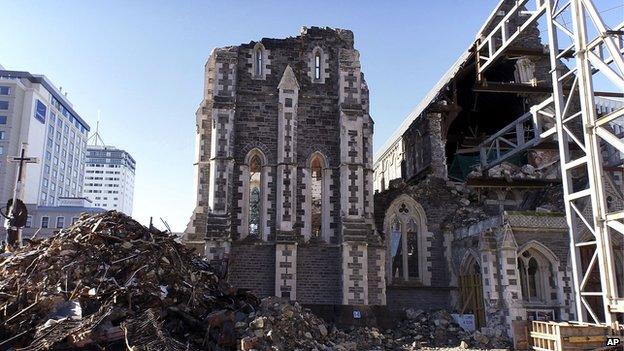Why do earthquakes happen?
- Published

Although the ground we walk on seems solid, the Earth's surface is actually made up of huge pieces of flat rock called tectonic plates.
They float on top of a layer of softer, squidgy rock called the mantle.
The plates move very slowly, over millions of years, and where they come together is called a fault.
When the plates rub together, the movement forces waves of energy to come to the Earth's surface.
This causes tremors and shakes - and these are called earthquakes.
They can cause huge amounts of damage, particularly in cities and built-up areas, where buildings, roads and bridges can collapse.
Major earthquakes are very rare and the UK only ever sees minor tremors.
